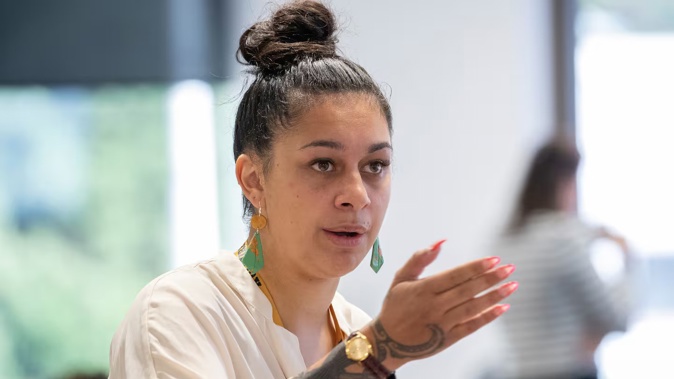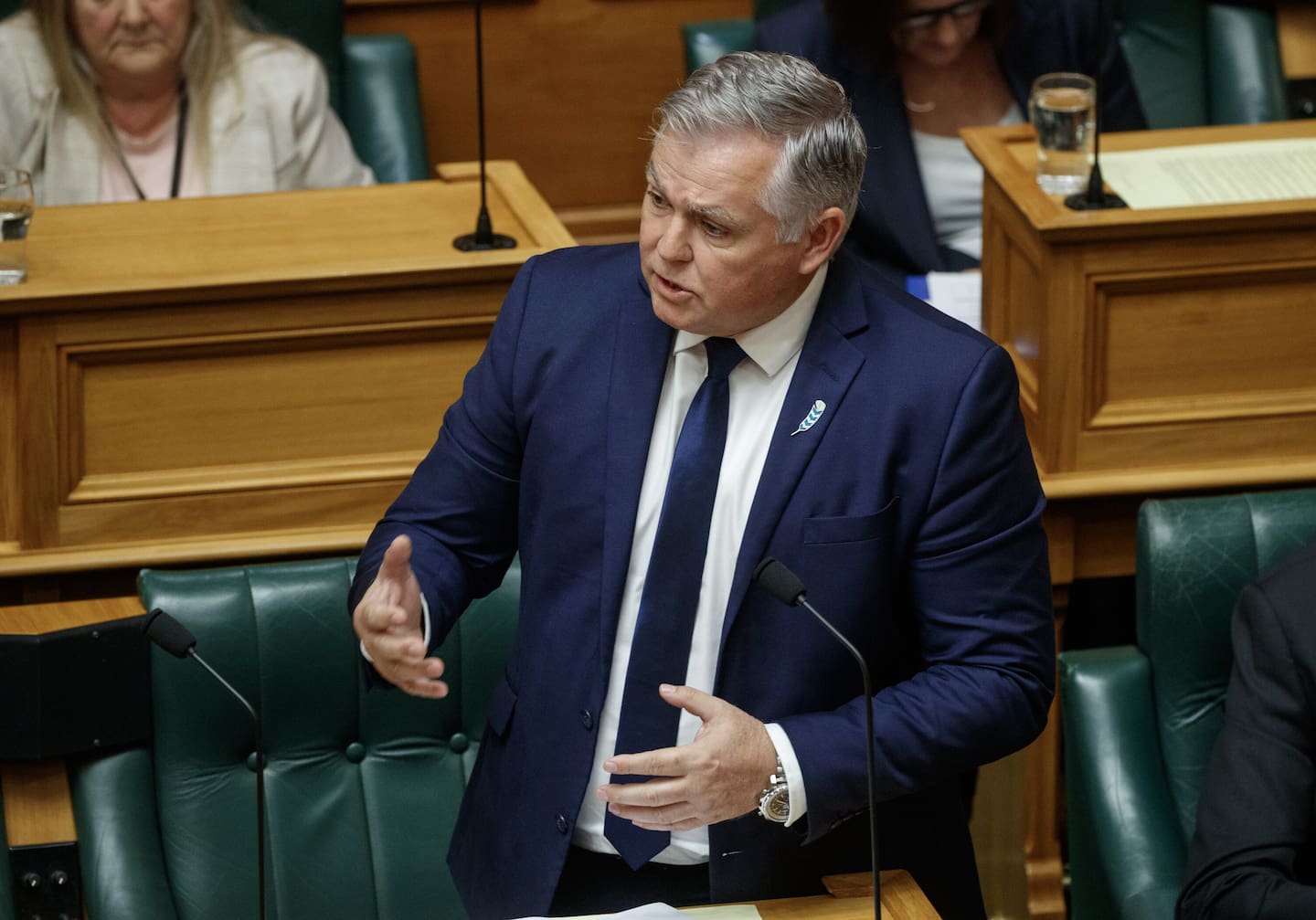
Two organisations Green MP Tamatha Paul says told her community beat police officers were throwing homeless people’s items away have now responded to her claims.
The Salvation Army initially told the Herald it was unclear who in an official capacity told Paul what she had claimed, but later said it was aware of a support worker who had spoken to the Green MP last year about police engagement with homeless people’s property.
Meanwhile, the DCM (Downtown Community Ministry) said it had “not made a formal complaint” to Paul about beat patrols discarding homeless people’s belongings and it had a “constructive and respectful” relationship with police.
Speaking to Newstalk ZB on Wednesday morning about community beat patrol officers, Paul said: “Some of the complaints that I have received is that beat patrol officers wait for people and homeless people to leave their spots, pack up their stuff and throw it in bins”.
“Now I have heard that from the Salvation Army and DCM. Those are two credible organisations that look after our street community,” she said.

Green MP for Wellington Central Tamatha Paul. Photo / Georgina Campbell
The two organisations were approached for comment, asking if it had raised any concerns with Paul about police officers’ engagement with homeless people.
The Salvation Army initially said it was not aware of anyone in an official capacity making that statement to the MP.
“I am not sure who might have made this comment to MP Tamatha Paul, but it was not anyone in an official capacity with The Salvation Army as I am aware,” a spokesperson said.
“We do have a good relationship with the New Zealand Police, and we would raise any potential problems directly with them.”
Later, the group said it had become aware of one of its homeless support workers mentioning to Paul last year that “there were a considerable amount of supermarket trolleys being used by the homeless to store their stuff”.
“Police returned the trolleys to the supermarket and a few of the homeless people’s possessions got caught up in the returns. This was raised with the police at a regular meeting our support workers have with them.”
Asked if it was disappointed Paul was attributing comments from one individual associated with the Salvation Army to the organisation overall, a spokesperson said: “No, we work with the police and MPs, particularly through our Social Policy and Parliamentary Unit, to find solutions for homeless people”.
“It is not unusual for an MP to raise an issue that affects people on the streets.”
A statement from the DCM said it was “proud” to work alongside the likes of Wellington City Council and police to find “practical and compassionate responses to homelessness”.
“These partnerships are important, and we remain focused on the mahi that leads to meaningful, long-term solutions,” it said.
“To clarify, DCM has not made a formal complaint to the MP for Wellington Central regarding police beat patrols discarding the belongings of people experiencing homelessness.
“However, as an organisation that works closely with some of the most vulnerable in our city, we regularly hear from those affected by the policies and systems that shape their daily lives. These lived experiences inform our ongoing work and advocacy and reinforce the need for thoughtful, well-resourced, and co-ordinated responses.”
It said addressing homelessness was not something one agency could do along and required “collective efforts” from central and local government, police, housing providers, social services, and the wider community.
“Our experience of working with Wellington Police has, overall, been constructive and respectful. We are committed to continuing this relationship, while also creating space for honest kōrero about what’s working, and where there is room to improve.”
Asked who exactly from the Salvation Army had told her of their concerns, Paul told the Herald on Thursday that her comments “were based on the feedback I have received from people working on the ground with the homeless community”.
“I take these experiences very seriously, as I do with the overwhelming evidence of what actually prevents crime, and I believe it is important that this is represented in Parliament.”
“I have received a lot of feedback from my constituents over the past 24 hours that further reinforces the reality that there are a lot of people out there who want real solutions to crime, not bandaids. That means investing in housing, healthcare and people’s wellbeing.
“The basic point remains: we need to invest in community-based solutions to better support those experiencing homelessness and genuinely solve these problems, not just shift them along. Police respond to crime. We are dedicated to preventing crime.”
The Wellington City Council said it had the authority to enforce public places bylaws “not police”.
“While the bylaw allows for the removal of unpermitted items in public spaces, this is always a last resort.
“We have a clear process in place that prioritises engagement and support. Our teams work closely with the police beat team, DCM, and Wellington City Mission to connect people with services when their belongings pose health and safety risks or block public access.”
It said it liaised with businesses and community members who may be affected and police patrols were part of a “broader, co-ordinated approach”.
“As part of our city safety and wellbeing plan, council is increasing support for Māori wardens, Pasifika patrols, and ethnic community patrols. We’re also deploying our own urban liaison officers, who will work alongside the police beat team — ensuring a visible, compassionate, and well-connected presence across the city."
Asked about concerns of officers waiting around to throw away homeless people’s items, a police spokesperson said: “Wellington Police have not received any complaints of this nature”.
“On occasion, Police assist with keeping the peace while Wellington City Council enforces the Public Places Bylaw.”

Tamatha Paul was a Wellington City Councillor. Photo / Mark Mitchell
As the Herald has revealed this month, Paul has made several comments about the judicial and policing system that have raised eyebrows.
The Green MP early in March told the Herald she expressed “regret” after incorrectly claiming on TikTok that the “vast majority” of people in prison were there for non-violent reasons.
Last week, she spoke at an event hosted by the University of Canterbury’s Greens and Peace Action Ōtautahi during which she was critical of community beat policing.
She said “all they do” is wait for homeless people to leave their spot before throwing their property “in the bin”.
“Wellington people do not want to see police officers everywhere, and, for a lot of people, it makes them feel less safe. It’s that constant visual presence that tells you that you might not be safe there, if there’s heaps of cops,” Paul said.
Paul said she’s heard “nothing but complaints” about the beat patrols and questioned if the resource could be deployed better elsewhere.
She also said it was “completely possible” to “set up institutions that can overtake lots of functions of the police”. For example, New Zealand Transport Agency Waka Kotahi could take over road policing, or mental health teams could response to specific callouts.
When on Newstalk ZB on Wednesday morning, she highlighted her desire for services focused on preventing people getting in crime in the first place.
She said she had conversation with people in Wellington “who are concerned that beat police officers are taken away from core things that they should be responding to, like domestic violence callouts, sexual violence callouts and trading that off for a more visible presence”.

Police Minister Mark Mitchell was critical of Paul. Photo / Mark Mitchell
Police Minister Mark Mitchell said Wellington Central was an example of the success of beat policing.
“We’ve seen a 5.5% decrease in violent crime in the area that the beat team is deployed, compared to a 2% drop nationally,” the minister said.
Prime Minister Christopher Luxon said Paul’s comments about community beat officers were “quite outrageous and insane to be honest”. He said police were doing an “incredible job” and Paul was “in la la land”.
Act leader David Seymour said people in his Epsom electorate were supportive of a police presence.
“They provide security. They deter very real violence. I represent an area with a lot of shopping, a lot of people feel unsafe, a lot of people feel unsafe locking up their shops, especially in the winter months, when it’s dark. Seeing the police around, seeing security around gives people a lot of reassurance.”
Winston Peters, the NZ First leader, said the Greens were a “bunch of ideologically driven anarchist losers”.
The criticism wasn’t just coming from the current Government parties, but a potential future coalition partner for the Greens in Labour’s Chris Hipkins.
“Tamatha Paul’s comments were ill-informed, were unwise, and in fact were stupid. I don’t think responsible Members of Parliament should be undermining the police in that way,” Hipkins said.
“I think the New Zealand public have huge confidence in the New Zealand police and they should have confidence in the New Zealand police.”
Greens co-leader Chlöe Swarbrick said Paul was expressing “the sentiments she has heard from constituents, and the evidence base which points out that police respond to crime and if we want to prevent it, that we invest in people’s wellbeing”.
Asked directly whether she had evidence officers were throwing away homeless people’s items, Swarbrick said: “I can come back to you on that”.
“What I can say is that those reflect comments we have heard from different constituents in our respective electorates.”
She hadn’t seen all of Paul’s comments, but believed there was ample evidence to show the criminal justice system was broken.
On Hipkins’ remarks, Swarbrick said it was a “political environment” and the Greens were focused on “evidence-based policy”.
Te Pāti Māori’s Rawiri Waititi said police officers should be wearing body cams “so we can actually see what’s actually happening”.
Take your Radio, Podcasts and Music with you









